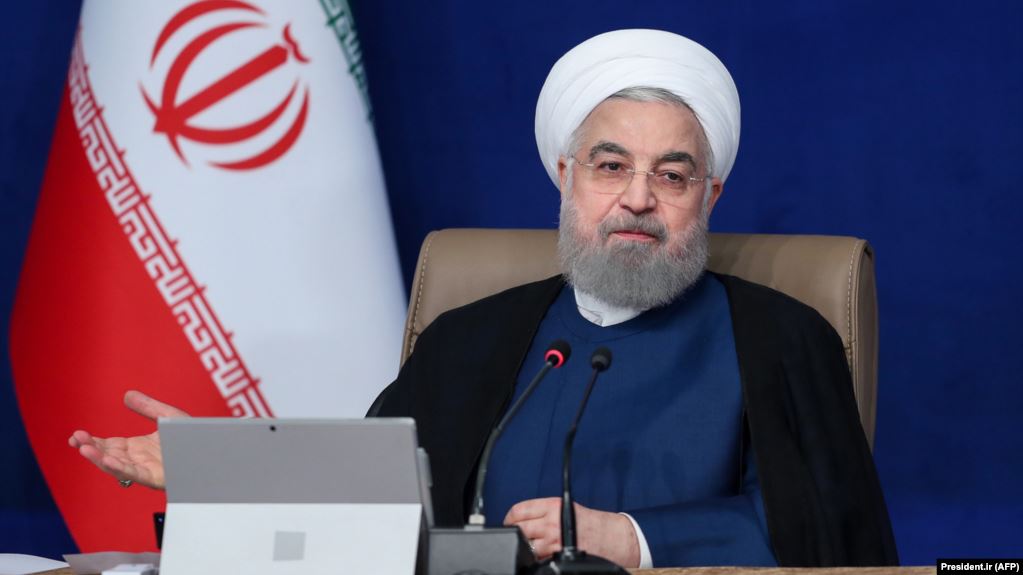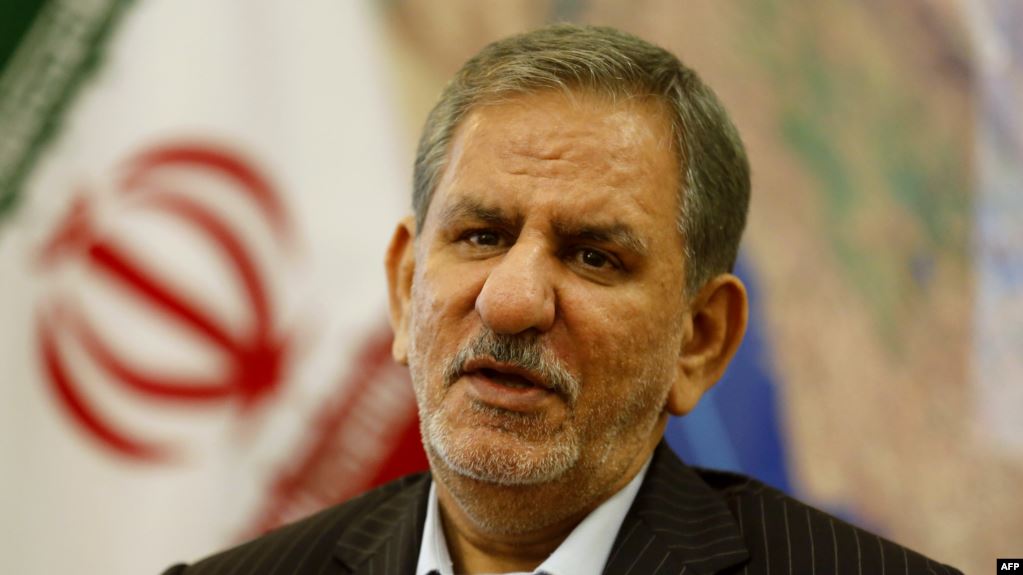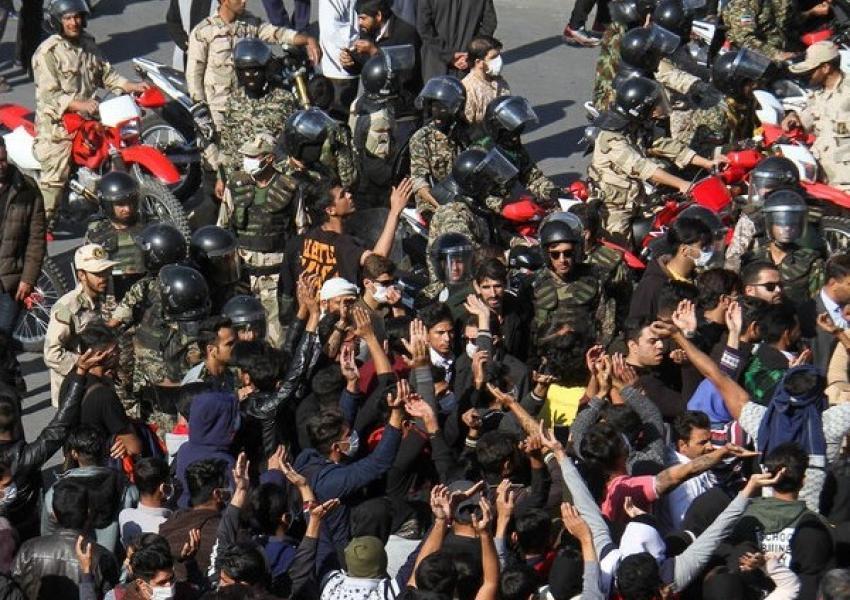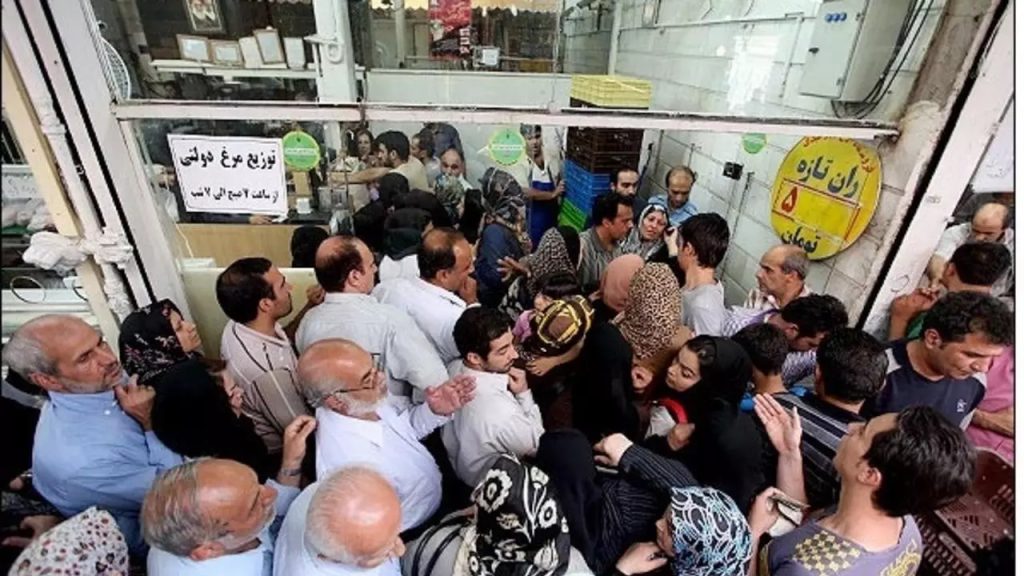
The Necessity of Understanding the Circumstances, Instead of Calls for Impeachment
The editorial of Tejarat explains why Iranian lawmakers shouldn’t impeach Finance and Economic Affairs Minister Farhad Dejpasand, as under current circumstances, it will only backfire.
There is talk of collecting signatures in the Parliament for impeaching the finance minister. Apart from the fact that his performance wasn’t wholly poor and also included some strong points, it must be taken into account that Iran is under a lot of pressure, and the country’s economy has been hit hard in this economic war waged against it.
For a country that has had defective economic structures for years, we cannot expect to have fundamental reforms in the economy, given the extreme pressure of sanctions faced by the country.
The lawmakers must pay attention to the fact that there are less than nine months left until the end of the government’s term, and a new president will be soon elected. So, even if there is an impeachment, it will not help to resolve the issues.
If during this economic crisis the finance minister is impeached, the ministry will be run by an acting minister for some time. There would not be much time for the acting minister to coordinate with his deputies and resolve the issues. What must also be considered is that an acting minister doesn’t have enough powers.
So, instead of impeaching the finance minister, the lawmakers can invite the minister and other related officials to talk about the existing challenges and find solutions for them.
The other challenging issue is that of foreign policy. Now that Trump will not be in power for too long, he will continue to increase the pressure on Iran, while the policies of the next US administration towards Iran are not clear. That is why under these circumstances, impeachment will do nothing but worsen the situation.
Drafting Next Year’s Budget Bill Is Very Complicated
The editorial of Iran newspaper penned by Moayed Hosseini Sadr – adviser to the head of the Planning and Budget Organization of Iran – explains the complications involved in drafting the budget bill for the next year.
We can say that the government is drafting one of the most complicated budget bills for the next year (2021-2022). Different variables and factors will impact the bill. Even though in the recent US presidential election, Donald Trump was defeated and there is great hope for change in this country’s policy, the truth is that one cannot hope for the immediate removal of sanctions. Removing sanctions will take time, while FATF regulations will also create obstacles in this regard.
What is more, in addition to the severe drop in oil exports and the government’s oil revenues, the coronavirus outbreak has hit hard different parts of Iran’s economy. Meanwhile, lawmakers are new to this task, are full of slogans, and they don’t have enough experience in this regard –as illustrated in their attempt to pass a bill for increasing subsidies for essential goods; the bill was rejected by the Guardian Council.
As such, the government is facing many difficulties in drafting the budget bill, including financial problems, coronavirus, and the Parliament. Nevertheless, there is still hope. There is a good relationship between some lawmakers and the Budget and Plan Organization that is in charge of drafting the budget bill. Also, the government has already submitted the budget for government institutions to the Parliament.
In order to draft an effective bill, there must be a revision in the structure of the budget bill. Eliminating additional expenses, balancing the salaries of organizations, and creating new tax revenues are some measures that must be included in the budget.
Also, in line with implementing the general policies of the resistance economy in next year’s budget bill, exporting oil products, electricity and gas – 50 percent of which must be spent on investment, according to law – is on the government’s agenda. One of the government’s priorities in drafting the budget bill for the next year is providing essential goods, which will continue as before.
US Sanctions or Attacking the Iranian Nation?
The editorial of Jahan Sanat criticizes Iranian lawmakers for proposing a plan that requires the government to increase its uranium enrichment and stockpile, arguing that it is against the people’s and the country’s interests.
The US presidential election hasn’t been decided yet, and it is not clear if America will return to the nuclear deal or not. But the Iranian Parliament has already started to beat the drums of war. However, it is not clear whether these drums of war are beaten against Europe and America or against Rouhani’s government and Iran and Iranians.
In the plan proposed by the Parliament, the Atomic Energy Organization of Iran would be ordered to produce 120 kilograms of uranium enriched at the level of 20 percent. It must be noted that even during the tenure of former President Mahmoud Ahmadinejad, when Iran was in full confrontation with the international community, 20 percent enriched uranium was not one of Iran’s priorities.
The plan was proposed in the Parliament when it became more likely for Joe Biden to win the US presidential election. As such, it is not clear whether Iranian lawmakers want to confront Trump’s administration or put more pressure on Biden. Biden’s approach is different from Trump’s towards the nuclear deal, but the Iranian Parliament’s plan isn’t prepared to deal with both approaches.
Iranian lawmakers cannot say either that their plan aims to change the European countries’ behavior, as Europe has had nothing to the with Trump’s sanctions against Iran. Moreover, it is commonly believed that neither Europe nor the international community can encourage Trump’s administration to lessen or revoke the sanctions. So, it seems that the Parliament’s plan is to put pressure on the US administration which has shown no interest in revoking or reducing the sanctions while Trump is still in power.
In this plan, there are other provisions which aim at hampering Iran’s nuclear cooperation with Europe. If Biden, as expected, becomes the president and wants to return to the nuclear deal, there shouldn’t be any obstacles for both sides to normalize their relations.
But the Iranian Parliament’s plan will put Rouhani’s government in a very complicated situation. This means that Iranian lawmakers are driving the country towards a risky, tortuous path, while it is not clear if the country or the people will make any gains from this.
How Many Iranians Should Die Until…?
The editorial of Hamdeli underscores that the government must take serious measures to fight coronavirus, or else the disease will take more and more Iranian lives.
At the outset, the ominous coronavirus entered Iran from China, and has brought nothing but death for the people. In those days, journalists, media and experts urged that flights to and from China must be stopped, but the officials and decision-makers paid no attention to these words, and at times they even tried to deny that coronavirus was in the country. Then the coronavirus started taking people’s lives.
Even then they had no plan for fighting the coronavirus disease. And were it not for the sacrifices made by the healthcare workers in the country, the virus would have taken more lives. Nevertheless, under the pressure of public opinion, the government had to change its approach, taking some measures such as banning public gatherings like Friday prayers and religious rituals and ceremonies.
What helped coronavirus spread all over the country was: first, the lack of strategic planning by the government; second, not paying attention to the recommendations of healthcare experts to the extent that all the efforts of healthcare workers were wasted and as a result, we are witnessing the deaths of hundreds of people in Iran every day.
The truth is that Tehran has become the hotspot for spreading coronavirus in the country, and meanwhile, big cities are also spreading the virus to small cities and villages. So, it is a must to take nationwide measures to stop the spread of coronavirus and protect people’s lives.
Perhaps, the government’s biggest problem in this regard is the lack of budgetary revenues to improve the financial situation of the people. But if the government decreases its budget allocations to certain institutions that are useless for the country, or if it cuts down paying astronomical salaries to its managers, then perhaps it can partially resolve its financial issues.
How many more Iranians should die of coronavirus before the government takes serious measures to decrease the death rate?

Iran to Implement Strict Coronavirus Restrictions

President Hassan Rouhani has announced that strict social restrictions related to the coronavirus outbreak would be enforced nationwide as of next week.
Speaking at the National Headquarters for Combating Coronavirus, Rouhani stated the process of implementing this plan would be varied in different cities and will continue until the end of the pandemic.
However, Hassan Rouhani did not refer to the possibility of a two-week lockdown for Tehran. In the past month, the head of the Tehran City Council and its members have repeatedly called for putting Tehran on lockdown for at least two weeks to curb the spread of coronavirus. Their request has been disregarded by the coronavirus headquarters so far.
According to official statistics, nearly 762,000 people have contracted coronavirus out of whom more than 41,000 have lost their lives up to now. Nonetheless, a number of experts, including the head of Iran’s Medical Council, have said the real statistics are three to four times higher than the official figures.
Rouhani’s administration has already implemented a three-stage plan to restrict traffic: the first stage in 43 provinces, the second stage in 90 provinces and the third stage in the centers of provinces. However, it has made no considerable difference to the spread of coronavirus in Iran.
In his speech, Rouhani also asked the country’s different organizations once again to implement the recommendations issued by the coronavirus headquarters. However, as the recommendations have not been implemented in recent months, the Iran’s Supreme Leader Ali Khamenei ordered setting up an operational base to address this issue. No reports have been published on the activities of this base as yet.
Meanwhile, Iranian government spokesman Ali Rabiei said the cities’ lockdowns are supposed to start on November 21: “In this massive lockdown, exiting from cities will be restricted, and trips from one city to another will be prohibited.” He added that the lockdown plan includes 100 cities.
Rouhani’s Administration Rails at Parliament Speaker Over Economic Crisis

A number of officials in Hassan Rouhani’s administration, including the first vice president, the head of the Planning and Budget Organization and the Central Bank governor, have slammed Parliament Speaker Mohammad Bagher Ghalibaf who had pointed the finger at the government for the economic disaster in Iran.
First Vice President Eshaq Jahangiri, in a recent criticism of Ghalibaf, accused him of not knowing anything about the economy after he said Rouhani’s government needed to create new revenue sources such as increasing customs duties in order to provide essential goods.
“Some say we should increase customs duties,” noted Jahangiri, “The person who says such words only reveals that he knows nothing about the economy.” He added that such measures would lead to inflation and the skyrocketing of prices of all goods.
Meanwhile, head of the Planning and Budget Organization Mohammad Bagher Nobakht wrote a critical letter to Ghalibaf who had put the blame on Rouhani’s government for its inability to tackle the country’s economic problems.
Previously, Ghalibaf had stated that the root of Iran’s economic problems was essentially “mismanagement” in the country and these problems would not be affected by the US presidential election results. He said issues such as high prices were “related to [the ministries and government institutions in Tehran] Pasteur, Bahrestan, Bob Homayoun and Mirdamad, not to Georgia, Michigan, and Arizona.”
In reaction, Nobakht said the country’s forex revenue has been reduced “from hundreds of billions of dollars to a few billion dollars.” Moreover, Governor of the Central Bank of Iran, Abdolnasser Hemmati, wrote a letter to Ghalibaf saying his bank is “not waiting for the US election results.”
In recent weeks, principlists have repeatedly censured Rouhani’s administration for tying its decisions to the US election results. However, it is highly unlikely that a new US administration could disentangle Iran’s establishment from the quagmire of economic hurdles.
Anniversary of Iran’s November Protests: Death Toll Still Unannounced, Arrestees Still Behind Bars

A year ago on a Friday evening in November, the Iranian people, fed up with skyrocketing prices and unemployment as well as corruption and the despotism of the Iranian Republic establishment, took to the streets nationwide to voice their protest.
Triggered by an official announcement of the sudden tripling of petrol prices, these protests soon spread across more than 27 provinces in the country. The reaction of the establishment, however, was a severe crackdown which resulted in thousands of killings and arrests.
The death toll of the November protests was never announced by Iranian officials. Not to mention that those arrested at the time were sentenced to heavy prison terms, lashes, exile and forced labor in military and state institutions. 460 years of discretionary imprisonment and 5,000 lashes were among the punishments handed out to nearly 120 detained protesters – and these statistics are only related to the cases that have been publicized.
At least three young protesters currently behind bars are on death row. The father of one of them recently hanged himself in torment over his son’s impending hanging. An 18-year-old protester also attempted suicide after he was given a 10-year jail sentence.
Now on the anniversary of that bloody repression, 48 Iran-based political, social and human rights activists have issued a statement warning against the continuation of “tyranny, inefficiency and corruption” by the Iranian Republic establishment, calling for an end to the “systematic violence” against people and the release of those arrested during protests in recent years.
Criticizing the the Iranian Republic establishment for its “unprecedented suppression,” the statement says: “Now that a year has passed since those heinous crimes, the statemen – drunk with their victory over indigent people – still continue to make threats and refuse to back off despite warnings by political, social, religious and human rights activists.”
The statement concludes: no government either in the history of Iran or the world has ever survived through repression.
Red Meat Disappears From the Tables of Low-income and Middle-class Families

A report by the Parliament’s Research Center on inflation in Iran shows that in 2019, red meat consumption by middle-class families decreased by more than 30 percent compared to 2016.
While there is a sharp decrease in the consumption of red meat, the prices of other goods like chicken meat has increased by more than 100 percent.
The report underscores that in 2019, while the consumption of meat among middle-class families decreased by 36 percent, it is only natural that the consumption of meat among the families of workers who earn the minimum wage must be much lower.
Of course, these figures are calculated without taking the inflation in 2020 into account. Given the increase in point-by-point inflation announced for October, it can be forecasted that the purchase of essential goods by Iranian households has further decreased. According to the Statistical Center of Iran, point-by-point inflation for the month of October reached 41.4 percent.
These days, according to a labor activist, whenever you talk to workers, the first thing they say is, “I can’t buy meat and chicken any longer.” They cannot consume meat, and this significant food item has not been on their tables for a long time.
Earlier, many Iranian households are said to have reduced or dropped red and white meat, eggs, and dairy from their diet. According to a poll, more than 8 percent of Iranian households hadn’t consumed red meat in 2019.
Last year, along with the increase in US sanctions, the decrease in oil revenues, fluctuations in foreign currency prices, and the considerable increase in the prices of raw materials and goods, the purchasing power of Iranian households has considerably dropped.
